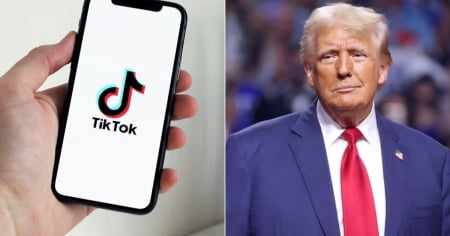On January 1, 2025, several laws related to access to social media, medical reimbursements, transparency in dental insurance, building permits, and voter registration will come into effect in Florida.
One of the most controversial is the HB-3, which prohibits minors under the age of 14 from creating accounts on social media and requires adolescents aged 14 and 15 to obtain permission from their parents or legal guardians to do so.
The HB3 Law aims to combat the risks associated with the use of digital platforms by minors, such as cyberbullying, threats from predators, and negative effects on mental health.
Technology companies are required to remove accounts of users under 14 years old and to implement age verification mechanisms, such as facial scans or official identification, to restrict access to sites with adult content. Those that do not comply may face severe fines.
Next, CiberCuba explains the remaining rules that will take effect starting Wednesday.
HB 135: greater control over the voter registration process
Starting in 2025, any voter who wishes to change their political affiliation will need to do so in writing. The aim is to ensure that changes are voluntary and confirmed, thereby maintaining the integrity of the electoral process.
SB 362: Increase in Medical Reimbursements
The maximum reimbursement amounts for doctors and surgical procedures are being increased. The aim is to protect the elderly and their finances.
SB 556: Prevention of Financial Abuse of Seniors
To protect older adults and other vulnerable individuals from financial abuse, financial institutions may delay suspicious transactions and notify the appropriate authorities.
HB 267: Streamlining Construction Permits
This regulation sets maximum deadlines for local governments to respond to requests and eliminates delays that could hinder projects.
SB 892: greater transparency in dental insurance
Dental insurance regulations aim to enhance transparency in the practices of insurance companies. Several practices that restricted options for both dentists and patients are prohibited to promote a more accessible and straightforward system
SB 184: Protection for First Responders against Threats, Harassment, or Interference in Their Work
Rescue workers will be better protected legally. The new regulation safeguards them from violent situations or interruptions, allowing them to perform their jobs safely and effectively. Anyone who violates this provision may face misdemeanor charges and possible imprisonment.
HB 1093: modernization of trust laws
The current Uniform Principal and Income Act of Florida (FUPIA) will be replaced with a new law that will allow for total return investment under "modern portfolio theory," provide for the conversion of an existing trust into a unitrust, and offer flexibility for "more individualized" estate planning.
SB 7054: Simplification of Bond Issuance
To expedite the issuance of bonds, a legal reform was implemented to facilitate the financing of public interest projects, allowing the necessary funds for infrastructure or development initiatives to be raised more quickly.
DEBATE ON THE LAW THAT PROHIBITS CHILDREN UNDER 13 FROM USING SOCIAL MEDIA
The HB3 law has drawn criticism from organizations such as the Computer and Communications Industry Association (CCIA) and the NetChoice coalition, which have filed lawsuits claiming that it is "unconstitutional" and violates the First Amendment by restricting minors' freedom of speech and hindering their access to information online.
The project, approved with broad bipartisan support in the Florida Senate (23 votes in favor and 14 against), addresses growing concerns about the impact of social media on adolescents. Supporters of the restriction argue that these platforms are linked to the rising rates of suicide, self-harm, and cases of cyberbullying among young people.
Laws Coming into Effect in Florida on January 1, 2025
What changes does the HB3 law introduce regarding the use of social media by minors in Florida?
The HB3 law prohibits minors under the age of 13 from creating social media accounts and requires that teenagers aged 14 and 15 obtain permission from their parents or guardians to do so. This measure aims to protect minors from the risks associated with using these platforms, such as cyberbullying and negative effects on mental health.
What are the main criticisms of the HB3 law?
The HB3 law has been criticized by organizations such as the Computer and Communications Industry Association (CCIA) and the NetChoice coalition, which have filed lawsuits claiming that the regulation is unconstitutional and violates the First Amendment by restricting minors' freedom of expression and making it harder for them to access information online.
What age verification measures will be implemented under law HB3?
The HB3 law requires technology companies to implement age verification mechanisms, such as facial scans or official identification, to restrict access to sites with adult content. Companies that fail to comply with these regulations may face hefty fines.
What other relevant laws will take effect in Florida in 2025?
Among the laws that will take effect in Florida in 2025 are HB 135, which establishes greater control over voter registration; HB 267, which streamlines building permits; SB 184, which protects first responders; and SB 556, aimed at preventing financial abuse of older adults, among others.
Filed under:
